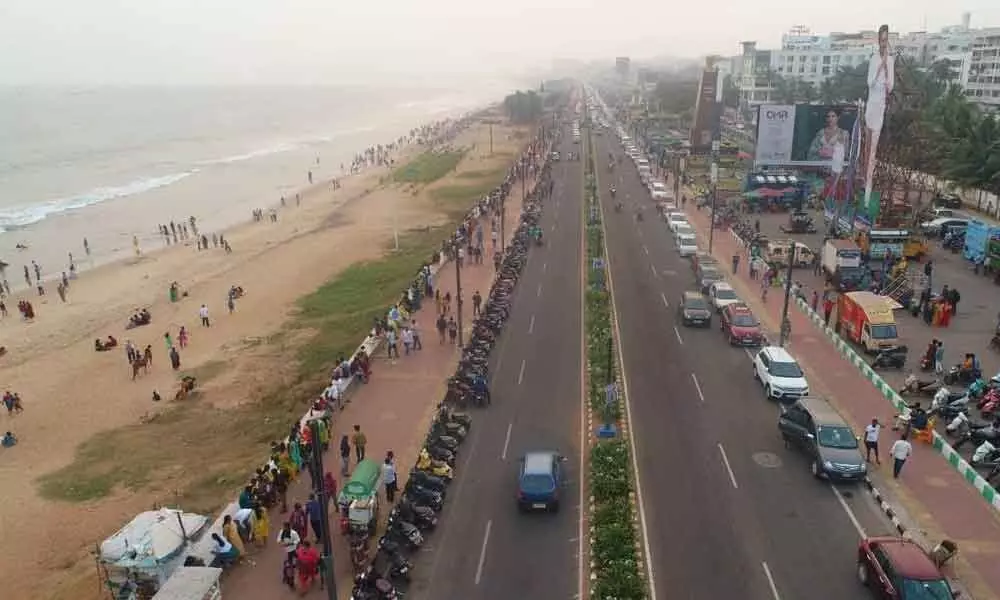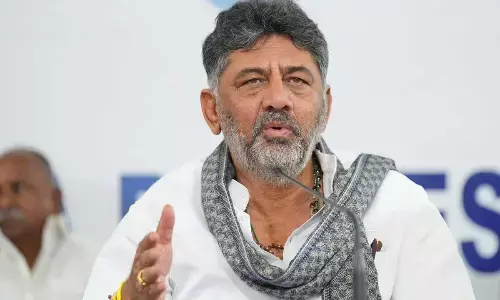Is Vizag going to be inundated by 2050?

Visakhapatnam
Is Visakhapatnam going to be susceptible to inundation in the next three decades?
Visakhapatnam: Is Visakhapatnam going to be susceptible to inundation in the next three decades?
When the ecosystem is gravely disturbed and things slip out of control, experts warn that serious repercussions turn out to be inevitable. Increasing human activity, cutting down trees, growing temperatures, coastal erosion and rising greenhouse gas emissions sum up to key contributors to the calamities that continue to recur across the globe, more so in coastal cities.
If a coordinated approach is not adopted to mitigate the climate crisis on a war-footing, scientists assert that the risk of submergence of some of the coastal cities is higher in future. A recent study carried out by the Noida-based geospatial analytics firm RMSI, a global risk management firm, indicated that parts of Visakhapatnam may submerge by 2050 as they are exposed to a larger risk of rising sea levels. The other cities that are at risk of submergence include Chennai, Mangaluru, Kochi, Thiruvananthapuram and Mumbai.
In Visakhapatnam, a majority of commercial buildings, followed by residential, industrial and port-related infrastructure face the risk of submergence and the identified areas include Jalaripeta, MVP Colony, Appu Ghar and Lawson's Bay Colony.
Since Visakhapatnam coast is susceptible to cyclone crossings, experts stress on considering concrete measures that give desired results in the long term.
"Beach is a part of the sea and not a part of the land. Effective mechanisms have to be considered to avoid construction of permanent structures on the beach as it disturbs the natural equilibrium. Also, the focus should be on maintaining encroachment-free beaches, protecting mangroves and coastal wetlands as they are meant to be conserved and not to give way to human development or encroached upon," explains Kakani Nageswara Rao, a retired Professor from Geo Engineering Department of Andhra University, who did extensive research on coastal erosion in Andhra Pradesh.
Scientists share climate mitigation strategies to arrest greenhouse gas emissions. Bringing change in policy frameworks, shifting to renewable energy, creating more carbon sinks, adopting eco-friendly energy resources, and, above all, ushering in a sustainable way of life would help tackle the climate crisis.
"Apparently, the wave dynamics have been affected due to various construction activities along the beach. Beach erosion has become a major concern in the port city. There is a need to strike a balance by bringing down human activity and conserving natural resources," adds the retired Professor.
Melting of the ice sheets and glaciers due to global warming, thermal expansion of seawater are some of the other reasons that play a role in sea level rise.
With climate change having a huge impact on coastal cities, experts lay emphasis on concerted measures to save them from potential risk.









